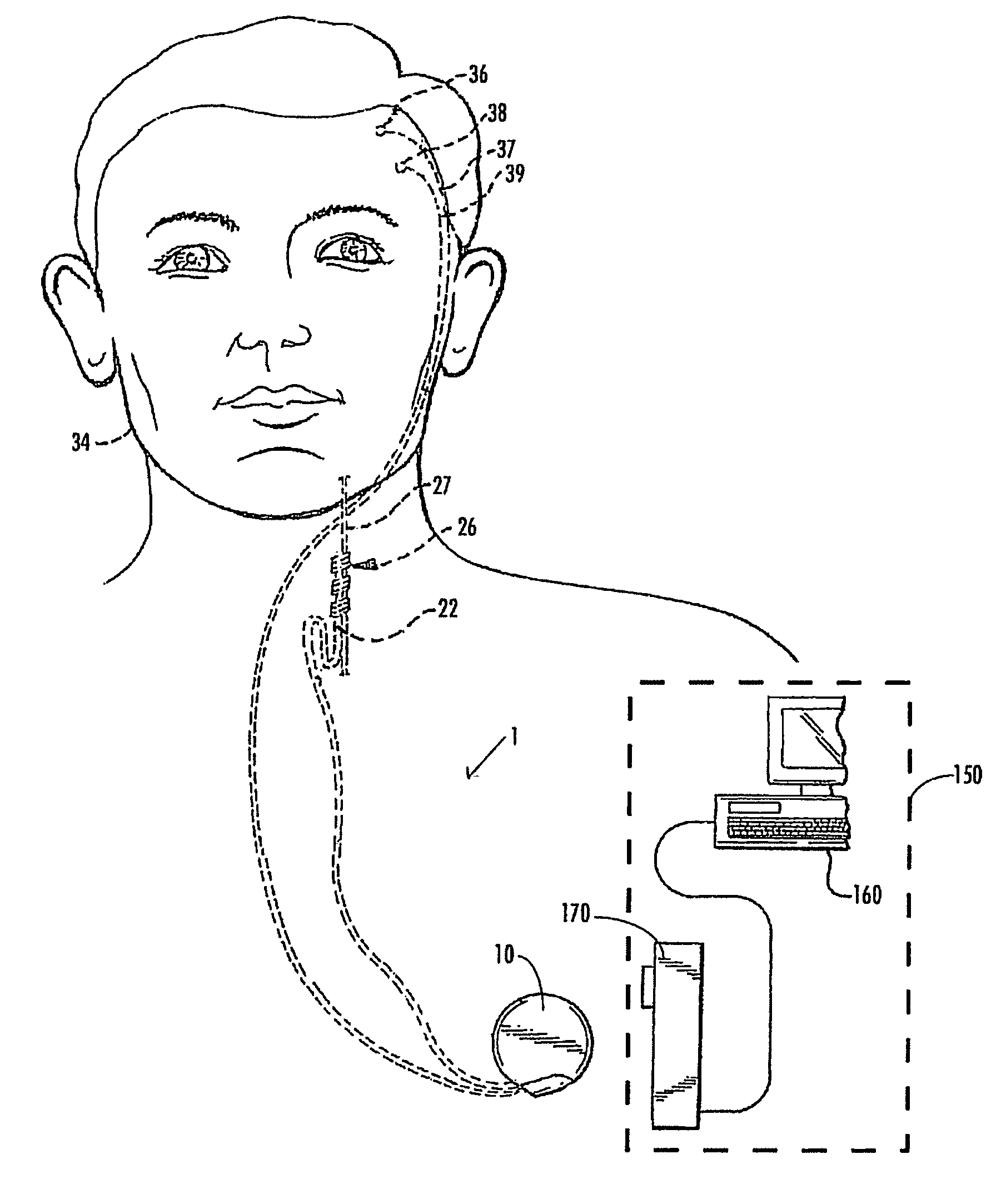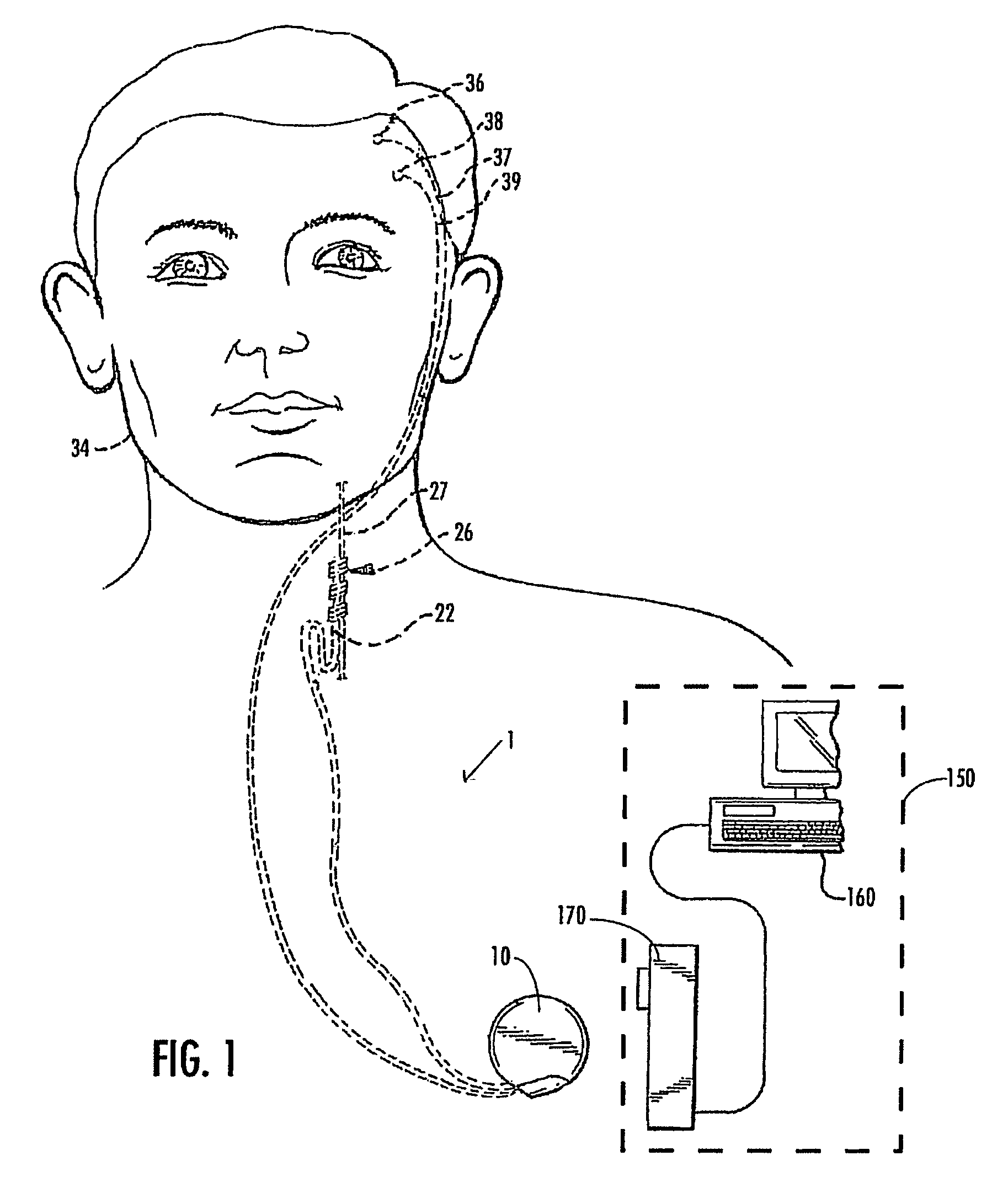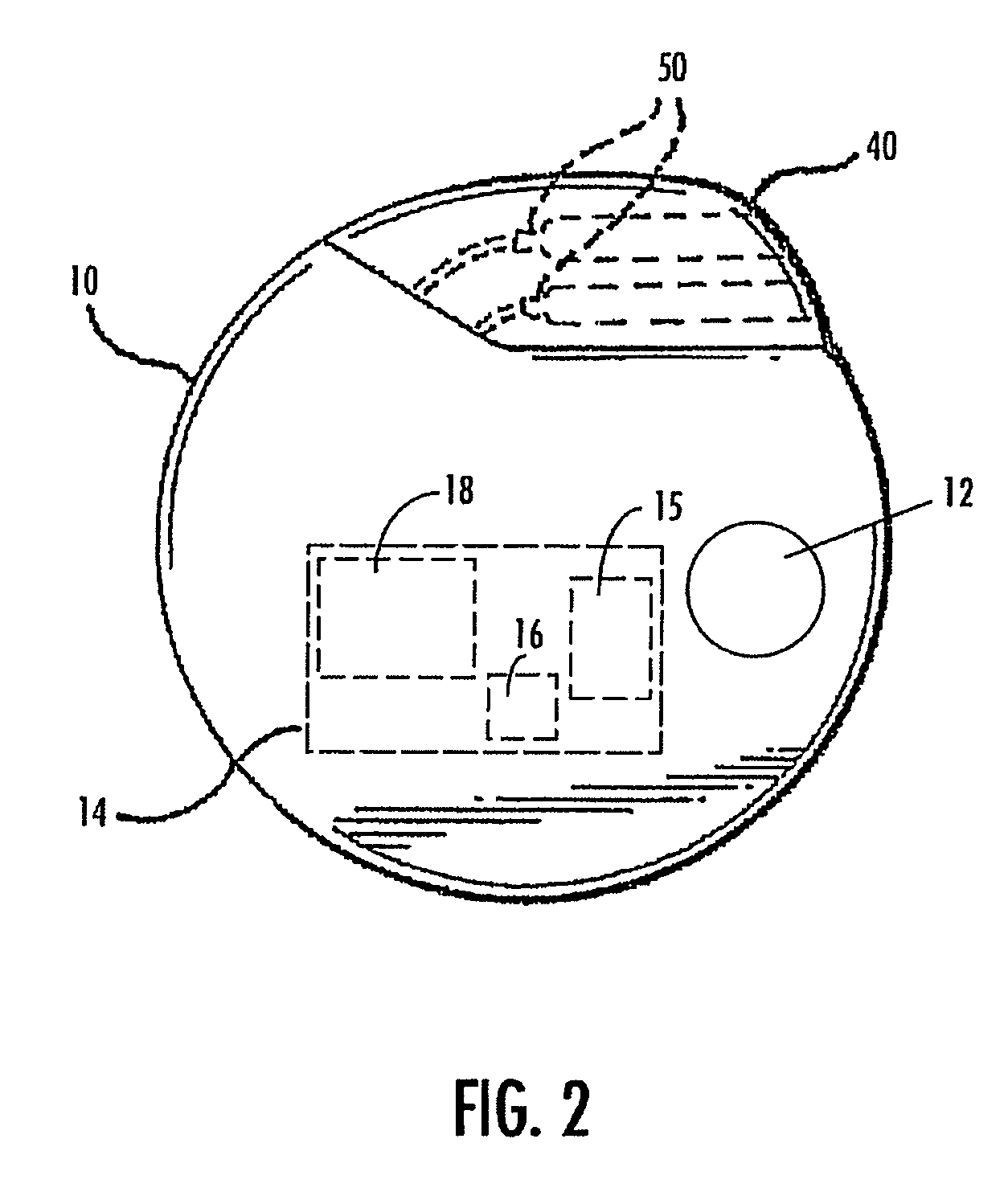Selective neurostimulation for treating epilepsy
a neurostimulation and epilepsy technology, applied in the field of selective neurostimulation for treating epilepsy, can solve the problems of sensory distortion, loss of muscle tone, and other symptoms of the person, and achieve the effects of reducing the number of patients, and improving the quality of li
- Summary
- Abstract
- Description
- Claims
- Application Information
AI Technical Summary
Benefits of technology
Problems solved by technology
Method used
Image
Examples
Embodiment Construction
Definitions
[0026]The term “epilepsy” refers to any of a variety of types of epilepsy syndromes, including, but not limited to, frontal lobe epilepsy, occipital lobe epilepsy, mesial temporal lobe epilepsy, parietal lobe epilepsy, benign myoclonic epilepsy in infants, juvenile myoclonic epilepsy, childhood absence epilepsy, juvenile absence epilepsy, epilepsy with generalized tonic clonic seizures in childhood, infantile spasms (West syndrome), Lennox-Gastaut syndrome, progressive myoclonus epilepsies, febrile fits, epilepsy with continuous spike and waves in slow wave sleep (ESES), Laudau Kleffner syndrome, Rasmussen's syndrome, and epilepsy arising from an inborn error in metabolism.
[0027]While epilepsy is a type of neurological disorder, the term “neurological disorder” as used herein also refers to motor disorder such as tremor and the class of tremor disorders, intentional tremor, dystonia, tardive-diskenesia, ballism, spasticity, athetosis, rigidity, akinesia, bradykinesia, or ...
PUM
 Login to View More
Login to View More Abstract
Description
Claims
Application Information
 Login to View More
Login to View More - R&D
- Intellectual Property
- Life Sciences
- Materials
- Tech Scout
- Unparalleled Data Quality
- Higher Quality Content
- 60% Fewer Hallucinations
Browse by: Latest US Patents, China's latest patents, Technical Efficacy Thesaurus, Application Domain, Technology Topic, Popular Technical Reports.
© 2025 PatSnap. All rights reserved.Legal|Privacy policy|Modern Slavery Act Transparency Statement|Sitemap|About US| Contact US: help@patsnap.com



